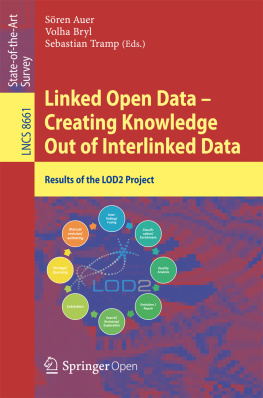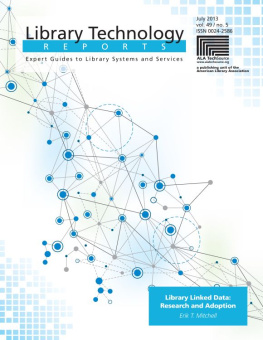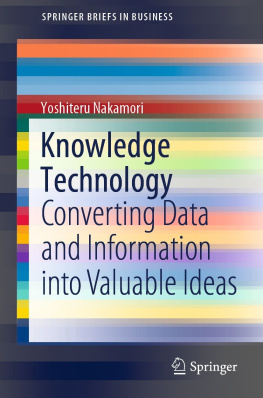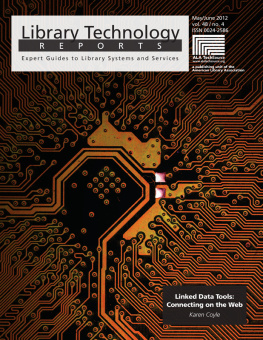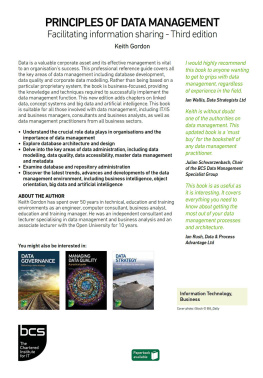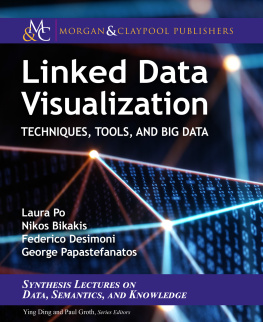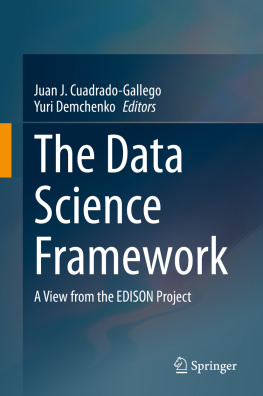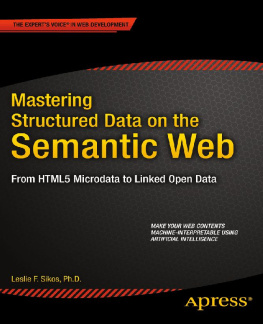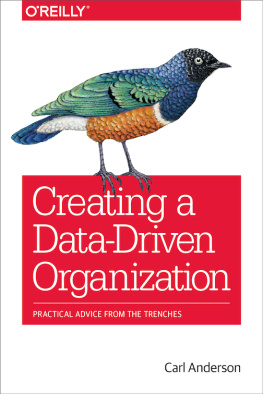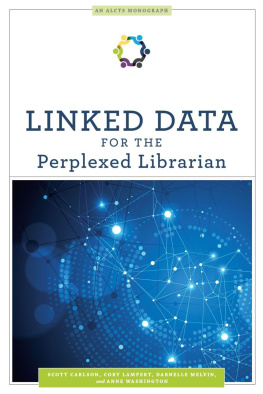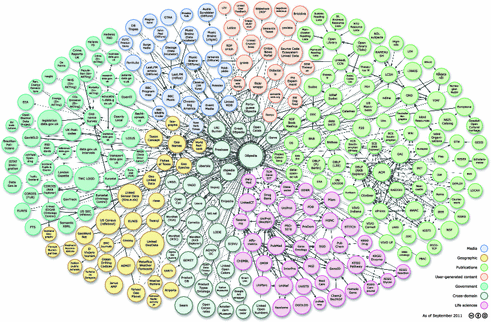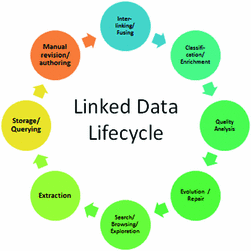The Author(s) 2014
Open Access This chapter is distributed under the terms of the Creative Commons Attribution Noncommercial License, which permits any noncommercial use, distribution, and reproduction in any medium, provided the original author(s) and source are credited.
Sren Auer , Volha Bryl and Sebastian Tramp (eds.) Linked Open Data -- Creating Knowledge Out of Interlinked Data Lecture Notes in Computer Science 8661 10.1007/978-3-319-09846-3_1
Abstract
In this introductory chapter we give a brief overview on the Linked Data concept, the Linked Data lifecycle as well as the LOD2 Stack an integrated distribution of aligned tools which support the whole life cycle of Linked Data from extraction, authoring/creation via enrichment, interlinking, fusing to maintenance. The stack is designed to be versatile; for all functionality we define clear interfaces, which enable the plugging in of alternative third-party implementations. The architecture of the LOD2 Stack is based on three pillars: (1) Software integration and deployment using the Debian packaging system. (2) Use of a central SPARQL endpoint and standardized vocabularies for knowledge base access and integration between the different tools of the LOD2 Stack. (3) Integration of the LOD2 Stack user interfaces based on REST enabled Web Applications. These three pillars comprise the methodological and technological framework for integrating the very heterogeneous LOD2 Stack components into a consistent framework.
The Semantic Web activity has gained momentum with the widespread publishing of structured data as RDF. The Linked Data paradigm has therefore evolved from a practical research idea into a very promising candidate for addressing one of the biggest challenges in the area of intelligent information management: the exploitation of the Web as a platform for data and information integration as well as for search and querying. Just as we publish unstructured textual information on the Web as HTML pages and search such information by using keyword-based search engines, we are already able to easily publish structured information, reliably interlink this information with other data published on the Web and search the resulting data space by using more expressive querying beyond simple keyword searches. The Linked Data paradigm has evolved as a powerful enabler for the transition of the current document-oriented Web into a Web of interlinked Data and, ultimately, into the Semantic Web. The term Linked Data here refers to a set of best practices for publishing and connecting structured data on the Web. These best practices have been adopted by an increasing number of data providers over the past three years, leading to the creation of a global data space that contains many billions of assertions the Web of Linked Data (cf. Fig. ).
Fig. 1.
Overview of some of the main Linked Data knowledge bases and their interlinks available on the Web. (This overview is published regularly at http://lod-cloud.net and generated from the Linked Data packages described at the dataset metadata repository ckan.net .)
In that context LOD2 targets a number of research challenges: improve coherence and quality of data published on the Web, close the performance gap between relational and RDF data management, establish trust on the Linked Data Web and generally lower the entrance barrier for data publishers and users. The LOD2 project tackles these challenges by developing:
enterprise-ready tools and methodologies for exposing and managing very large amounts of structured information on the Data Web.
a testbed and bootstrap network of high-quality multi-domain, multi-lingual ontologies from sources such as Wikipedia and OpenStreetMap.
algorithms based on machine learning for automatically interlinking and fusing data from the Web.
adaptive tools for searching, browsing, and authoring of Linked Data.
The LOD2 project integrates and syndicates linked data with large-scale, existing applications and showcases the benefits in the three application scenarios publishing, corporate data intranets and Open Government Data.
The main result of LOD2 is the LOD2 Stack an integrated distribution of aligned tools which support the whole life cycle of Linked Data from extraction, authoring/creation via enrichment, interlinking, fusing to maintenance. The LOD2 Stack comprises new and substantially extended existing tools from the LOD2 partners and third parties. The major components of the LOD2 Stack are open-source in order to facilitate wide deployment and scale to knowledge bases with billions of triples and large numbers of concurrent users. Through an agile, iterative software development approach, we aim at ensuring that the stack fulfills a broad set of user requirements and thus facilitates the transition to a Web of Data. The stack is designed to be versatile; for all functionality we define clear interfaces, which enable the plugging in of alternative third-party implementations. We also plan a stack configurer, which enables potential users to create their own personalized version of the LOD2 Stack, which contains only those functions relevant for their usage scenario. In order to fulfill these requirements, the architecture of the LOD2 Stack is based on three pillars:
Software integration and deployment using the Debian packaging system. The Debian packaging system is one of the most widely used packaging and deployment infrastructures and facilitates packaging and integration as well as maintenance of dependencies between the various LOD2 Stack components. Using the Debian system also allows to facilitate the deployment of the LOD2 Stack on individual servers, cloud or virtualization infrastructures.
Use of a central SPARQL endpoint and standardized vocabularies for knowledge base access and integration between different tools. All components of the LOD2 Stack access this central knowledge base repository and write their findings back to it. In order for other tools to make sense out of the output of a certain component, it is important to define vocabularies for each stage of the Linked Data life-cycle.
Integration of the LOD2 Stack user interfaces based on REST enabled Web Applications. Currently, the user interfaces of the various tools are technologically and methodologically quite heterogeneous. We do not resolve this heterogeneity, since each tools UI is specifically tailored for a certain purpose. Instead, we develop a common entry point for accessing the LOD2 Stack UI, which then forwards a user to a specific UI component provided by a certain tool in order to complete a certain task.
These three pillars comprise the methodological and technological framework for integrating the very heterogeneous LOD2 Stack components into a consistent framework. This chapter is structured as follows: After briefly introducing the linked data life-cycle in Sect..
Fig. 2.
Stages of the Linked Data life-cycle supported by the LOD2 Stack.
The Linked Data Life-Cycle
The different stages of the Linked Data life-cycle (depicted in Fig. ) include:

